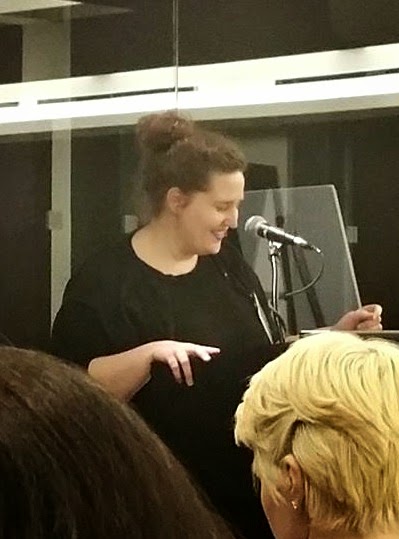 Amanda Maciel is the executive editor at Scholastic, specializing in commercial fiction. Her projects include the New York Times best-selling Wings of Fire series, the acclaimed graphic novel The Witch Boy, and the Enchanted Pony Academy chapter book series. She is also the author of two YA novels, Tease and Lucky Girl.
Amanda Maciel is the executive editor at Scholastic, specializing in commercial fiction. Her projects include the New York Times best-selling Wings of Fire series, the acclaimed graphic novel The Witch Boy, and the Enchanted Pony Academy chapter book series. She is also the author of two YA novels, Tease and Lucky Girl.When considering a manuscript, what makes you stop reading? What makes you want to keep reading?
A manuscript that is too general, too market researched will stop her from reading. She wants someone who knows where the market is, but is bringing his/her own voice to it. Amanda wants an authorial voice that translates through a narrator.
Anything you're seeing too much of? Or something you can't get enough of?
There has been a lot geared toward STEM and high concepts for girls, but not done in organic way, instead it feels like it's trying to teach and not provide good story.
Where do you see the greatest areas of weakness?
A story that isn't paced well is a weakness that comes up quite a bit. Especially with middle grade, the writing needs to be not too fast and not to slow. It's gold to be to know how to unfold a story for reader.
On working on revisions with an author:
It almost always go back to character motivation. Asking the author questions like: Why does she feel this way? Amanda say that in a way it almost feels like gossiping about a friend. "My role in revision...is getting the character arc solidified."
What do you think is the most important skill or attribute an children't book writer or illustrator can possess?
Endless curiosity about the world and about yourself.









